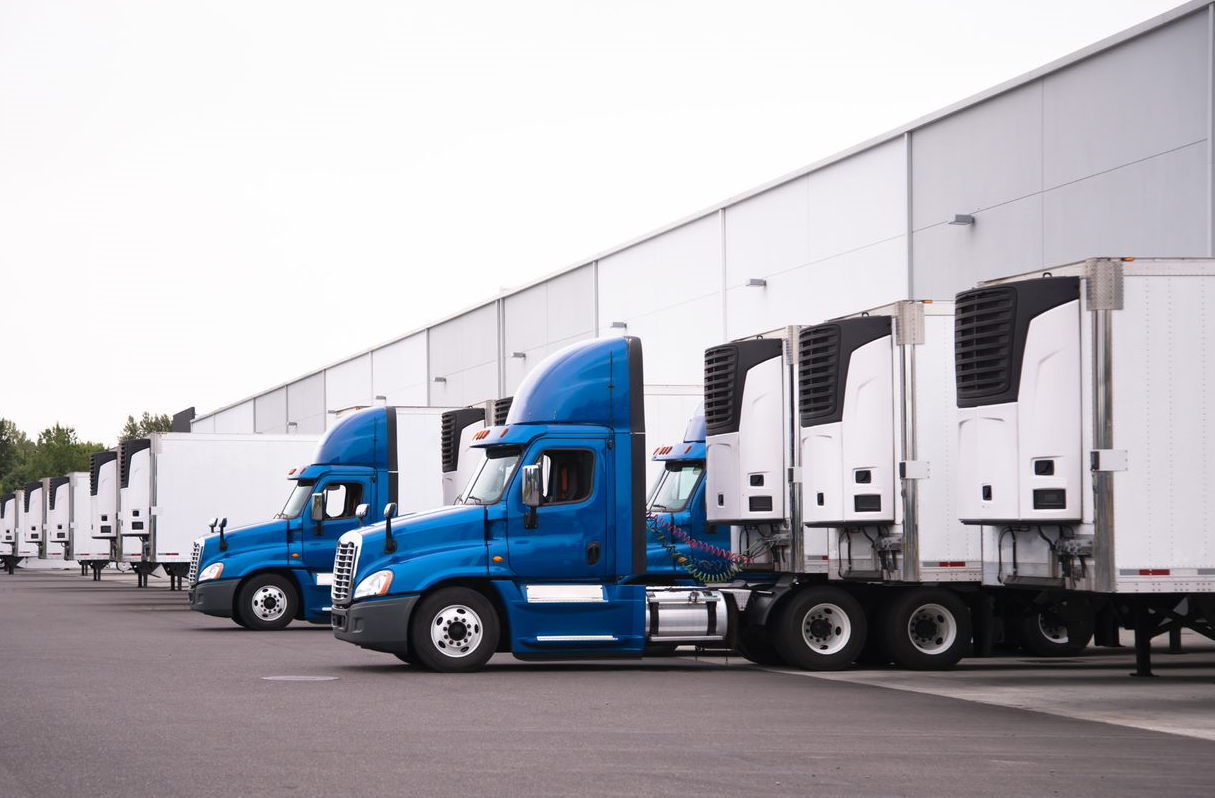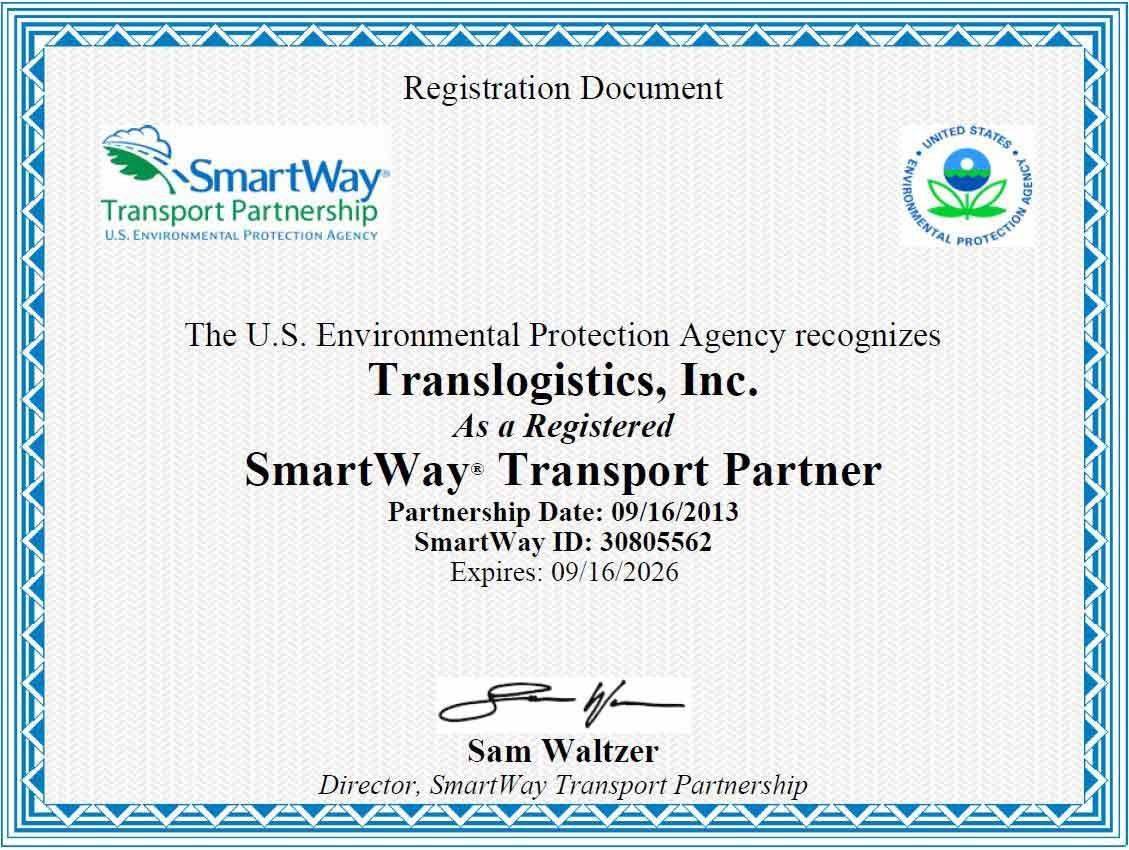Understanding Refrigerated Truckloads: What is a Reefer Trailer?
Temperature Controlled Shipping
A refrigerated truckload, or reefer truckload, uses a temperature-controlled trailer known as a reefer trailer. This trailer is essential for transporting goods that require precise temperature management, such as
perishable foods, pharmaceuticals, and other temperature-sensitive products.
Refrigerated Trailer Dimensions
A reefer trailer usually measures 48 or 53 feet in length, with the same width and height as a standard trailer. The temperature inside can be adjusted between -20 and 70 degrees Fahrenheit to suit the specific needs of the cargo being transported.
Temp Control Truckload Market Types
Reefer trucks are available in two types: spot truckload, where
freight brokers bid on available loads in the spot market. And alternatively, contract reefer truckload, which involves a long-term shipping agreement between a shipper and carrier for guaranteed capacity.

Temperature Control Delivery
Partnering with Translogistics (TLI), established in 1994, gives shippers access to expert carrier selection and competitive pricing strategies. With decades of experience and deep industry knowledge, TLI carefully vets carriers to ensure top-tier service and on-time deliveries. Shippers benefit from TLI's strong buying power, resulting in cost savings and streamlined logistics that simplify even the most complex supply chains.
Temperature-controlled delivery services play a vital role in transporting perishable goods by maintaining precise temperature ranges that prevent spoilage and extend product shelf life. This service is crucial for items like fresh produce, dairy, seafood, and pharmaceuticals, helping businesses comply with regulations and meet customer expectations while minimizing waste and financial losses.
TLI specializes in transporting seafood and other perishable goods, working closely with major companies in the pharmaceutical industry. Their expertise in managing temperature-sensitive shipments ensures that products arrive in perfect condition, preserving quality and adhering to strict safety standards. By partnering with TLI, shippers gain a reliable freight brokerage committed to delivering cost-effective, high-quality shipping solutions.

"My TLI rep consistently communicates with me about my temperature controlled shipments in a timely manner. He ensures I get the best reefer rates and service possible." - North American Temperature Controlled Shipper
Commodities
A temperature-controlled trailer transports a wide variety of commodities, including fresh produce, dairy products, meat, seafood, pharmaceuticals, chemicals, and electronics. Temperature control ensures these goods arrive in the same condition as when they were loaded.
Proper temperature control is essential for ensuring the quality and safety of products. If the trailer's temperature isn’t properly maintained, goods can spoil, become contaminated, or deteriorate in quality. So this can result in substantial financial losses for the shipper and damage their reputation.
When is the reefer TL market busy?
The reefer truckload market experiences peak activity during summer and major holidays. In the summer, rising temperatures increase the need for refrigerated transport to keep perishable goods from spoiling, leading to a surge in demand for reefer truckload services for items like fresh produce and dairy products.
Similarly, demand spikes before major holidays such as Thanksgiving and Christmas, as businesses and individuals transport large quantities of food and other perishable items for celebrations.
However, the exact timing and intensity of these busy periods can vary due to factors like weather conditions, supply chain disruptions, and shifting consumer preferences.
How do you determine the price for a Temp Controlled Truckload?
The cost of reefer truckload shipments in the spot market is influenced by factors such as supply and demand, fuel prices, distance, and urgency.
Typically, the price is negotiated between the shipper and the carrier, taking into account haul distance, shipment weight and size, required temperature range, and pickup and delivery locations. Carriers also consider their operating expenses, including fuel, maintenance, and labor, when providing a quote.
The FTL spot market pricing for reefer truckloads can be unpredictable due to volatile fluctuations in supply and demand. Prices tend to rise when demand exceeds the number of available trucks and drop when there are more trucks than shipments.
Seasonal changes, weather conditions, and unexpected supply chain disruptions can further impact reefer truckload pricing in the spot market.
Reefer truckloads require temperature-controlled trailers to maintain specific temperature settings for transporting various commodities. These trailers are available in both the spot and contract reefer truckload markets. Understanding temperature control and the types of reefer trailers is crucial for shippers handling temperature-sensitive products.

Refrigerated Truck Solutions for Optimal Temperature Control
At Translogistics (TLI), we excel in routing refrigerated trucks with high quality FTL carriers to keep your shipments at the perfect temperature. Our motor carrier partners' temperature-controlled trailers are equipped with tight seals to maintain consistent temperatures and come with advanced tire inflation systems and air ride suspension, upon request, for a smooth, dependable transport.
For added safety and to ensure the integrity of your food in transit, we recommend our shipping partners to enforce sealing the trailer and recording the seal number on the bill of lading. This thorough approach ensures your temperature-sensitive cargo remains in optimal condition from pickup to delivery.
TLI Insights
Get the latest logistics insights and tips from TLI's award-winning team. Stay ahead in transportation planning.
Questions? Email us at marketing@shiptli.com



